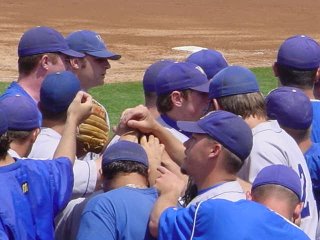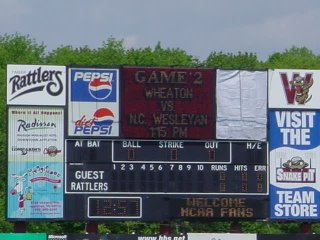Americans have an unhealthy obsession with sports. From the amount of money they spend on skyrocketing ticket prices, to the mega-dollars they plunk down on merchandise and other swag, professional sports occupies a sacred perch that is rarely questioned or challenged.
I can’t remember a recent book that achieved national attention that implicated professional sports or athletes and led to substantial changes in the way that Americans looked at, or resulted in radical behavioral alterations in how they associate with athletics of the professional variety.
Several times this spring, I’ve driven to Norton, Massachusetts, to watch my son participate in a college baseball contest. During portions of my three hour drive, I’ve spent time listening to sports talk radio, most notably content on
WEEI, Boston’s preeminent sports talk station. Several times during my time listening, I’ve wondered about the amount of time and energy, as well as the amount of passion that callers obviously devote to their local professional sports team. Seeing that it’s baseball season, most of the focus is on the Boston Red Sox, although, with the recent NFL draft, time was devoted to the Patriots’ draft selections. [I must admit, when the subject veered from the Red Sox, to football, I often changed the station. I’m just not a big enough pro football fan to listen to caller after caller discuss the minutia of the draft.]
I think it was Noam Chomsky, speaking about the aversion of many, to follow politics closely (or their lack of understanding), observing the phenomenon of sports talk radio and fan’s obvious complexity of thought about scenarios and circumstances regarding pro baseball (or football, or even NASCAR, heaven forbid) that made him confident that it wasn’t capability, or intellectual rigor of Americans that made them deficient in understanding political circumstances that affected them more directly than whether David Ortiz hit a home run, or Adam Vinateri kicked a field goal.
I am amazed that Portland’s own sports talk station,
WJAB (“The Big Jab”), will spend four hours each morning, five days a week, talking about the Red Sox. Caller after caller will weigh in on the previous night’s game, or some aspect of the team that is obviously troubling them enough to spend considerable time framing their arguments, or points of view.
Like their political talk counterparts, sports talk jocks don’t seem particularly insightful or wide-ranging in areas outside of their sports “expertise.” Like many right (or left, for that matter)-leaning political hosts, many sports-talk hosts seem somewhat deficient in the personality department, particularly in areas of politeness and tolerance of differing viewpoints from their own.
Interestingly, many sports talk hosts seem to be exceedingly patriotic, right-leaning, and several seem to be given to making racist, homophobic and sexist comments, on a regular basis. Several hosts (or host teams, as
WEEI likes to pair their jocks) didn’t seem to have any qualms about disparaging last Monday’s marches and planned walkouts by immigrants. Several times, snide comments were made about certain Latino ballplayers, as to whether or not they might not be in uniform. These were usually followed by the co-hosts raucous guffaws, indicating that a certain political ideology and orientation was deeply ingrained in that station’s culture. The intimation was that anyone who didn’t think like them was somehow, less manly, less American, or less intelligent (or any combination of these).
This has led me to consider what it is about sports that seem to play into dominant American cultural stereotypes? Obviously, sports have played a major role in the assimilation of immigrants into mainstream American culture. In my own research, I’ve found that many immigrant families encouraged young boys to embrace baseball, during the first half of the 20th century, as a way to quickly “fit in” to their communities.
Professional sports are clearly part of America’s corporate onslaught, and as such, must toe certain predetermined marks of decorum and parrot certain culturally-prescribed behaviors. If the business of business is business, then the business of baseball (and other professional sports) is also business.
Yet, while corporations increasingly control many national outlets of expression—books, magazine articles, and even mainstream news—occasionally, malfeasance is exposed and corruption within corporate culture is revealed.
Rarely, if ever, even among political progressives, does pro sports receive such scrutiny, even though the culture of professional athletics is riddled with racism, sexism and is very much homophobic. Commentators and writers, who rarely miss an opportunity to skewer our current president for his lack of intelligence, concern for the poor, or privileged pedigree, turn a blind eye to the very same "qualities" in their favorite professional athletes.
While two writers recently wrote a very damning
book, about Barry Bonds and his alleged steroid usage, Bonds is allowed to continue his assault on baseball’s home run records, with very little concern voiced by baseball’s millions of fans (and even less by baseball's guardians), nightly tossing down their hard-earned dollars and passing through ballpark turnstiles. While small numbers of fans have found this recent allegation the last straw, revenues continue to shoot skyward, salaries reach new heights of absurdity and players continue to look like cartoon caricatures, sculpted and beefed up with the latest chemical enhancements.
It’s been 35 years since Jim Bouton’s
Ball Four ripped the veneer off baseball’s protective cocoon. There hasn’t been another book written since that brought similar cries of outrage and betrayal and changed the way a particular professional sport is looked at and how its stars are treated.
Bouton’s book was truly ground-breaking, because prior to its publication, baseball players were thought to be whiter than the driven snow and at least on par with mom’s apple pie—not a bunch of drunken, whoring, crude human beings that they’ve always been—with the steroid allegations, we can also add “cheater” to the litany.
Despite efforts by a few writers, professional sports once again occupies a unique place in our current climate of bread and circuses, continually receiving kid-glove treatment from members of the media that no other business, or corporate entity does. This, despite a culture that is as corrupt, if not more so than anything found residing at Haliburton, Enron, or occupying the corridors of power in Washington, DC.
Maybe the role of sports isn’t intended to set a standard and indicate what’s best about our country. Maybe its role is to be a mirror, reflecting all that’s wrong with America, paraded before the rest of the world, once again revealing our ugliness and true nature, dripping with corruption and stained by the lucre that currently plagues it.
 [Let's Go!!]
[Let's Go!!] [Fans begin streaming into Fox Cities Stadium (home of the Wisconsin Timber Rattlers)]
[Fans begin streaming into Fox Cities Stadium (home of the Wisconsin Timber Rattlers)] [Wheaton's Chris McDonough nabs a Fighting Bishop (N.C. Wesleyan) on strikes]
[Wheaton's Chris McDonough nabs a Fighting Bishop (N.C. Wesleyan) on strikes] [Electronic scoreboard announces Wheaton's first game opponent]
[Electronic scoreboard announces Wheaton's first game opponent]







